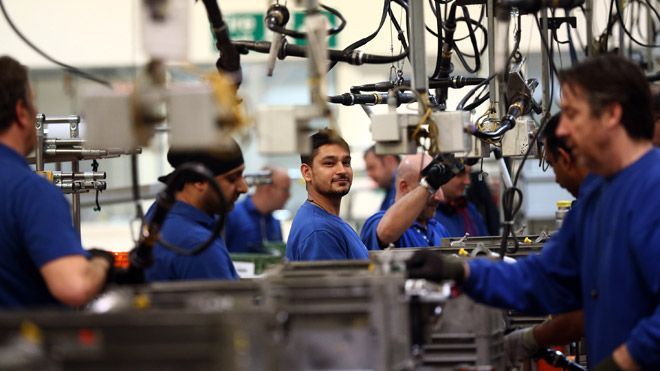
What would it take for trade deals to protect workers’ rights?
If trade deals don’t contain effective protections for workers’ rights, they just make it easier for companies to locate themselves in countries where wages are lower and workers are less able to resist exploitation.
Unfortunately trade deals the UK is currently involved in (via EU membership) do not contain adequate protections for workers’ rights.
The ETUC has raised concerns that, while EU trade agreements require countries to respect international standards on workers’ rights, there is very little in the agreements to hold countries to these commitments. This is why workers’ rights continue to be abused in countries the EU has signed trade deals with, such as Korea.
The ETUC is pressing for a change of approach along the lines of the actions listed below to make EU trade deals actually effective in protecting workers’ rights.
Fox’s dangerous friends
The TUC believes that we would be better off in the EU customs union, so we can continue to benefit from the decent jobs on good pay that EU trade delivers. If we left the customs union, there’s a serious risk that the Conservative government would negotiate even worse trade deals with the rest of the world that won’t protect workers’ rights.
It is worrying that trade minister Liam Fox has been enthusiastic about the prospect of signing trade deals with countries like the Philippines where the President has been implicated in the deaths of over 7000 people in his ‘campaign against drugs’. Appallingly, Fox spoke of the ‘shared values’ between the UK and Philippines in February.
Last week we also saw Fox cosying up to Trump in the USA – where trade unions are effectively illegal in some ‘Right to Work’ states – and the finance minister of Mexico – where employer-controlled unions have been used to crush workers’ rights.
8 actions needed
The TUC has developed 8 actions we want to see taken in future trade deals with non-EU states to protect rights and promote decent work. They are relevant whether the UK stays in the customs union or not. If we stay in, we will work with the European Trade Union Confederation to secure the EU’s support for them. If we end up out of the customs union, we will call for the UK government’s support.
1. Involvement of trade unions in trade negotiations
This is essential if trade deals are to deliver decent jobs and provide the protections needed for decent jobs and rights. Workers have at least as much at stake as employers do, so we should also have a voice in negotiations
2. No workers’ rights, no deal
The government should require potential trading partners to demonstrate respect for essential workers’ rights (outlined in the UN Sustainable Development Goal on Decent Work) before agreeing to sign a deal with them.
Trade deals should contain commitments that countries will to respect workers’ rights. There should be material consequences if these commitments aren’t followed – see (6).
3. Requiring companies to respect workers’ rights
Trade deals should also require countries to ensure their companies respect the Ethical Trading Initiative’s Base Code. This is a set of nine standards, based on the core conventions of the International Labour Organisation (ILO), including freedom of association, living wages and equality.
4. Trade union monitoring
Trade deals should establish an independent committee that monitors countries respect for workers’ rights. This should involve trade unions as well as other civil society representatives and experts.
5. Legal forum to investigate potential abuses
Trade deals should establish an independent legal forum of experts in labour law. Trade unions, other organisations and individuals should be able to submit complaints to this forum when there are abuses of workers’ rights, either by governments or companies. This should result in investigations being conducted and remedies considered.
6. Penalties
If the independent legal forum finds that a country has broken its commitments on workers’ rights, it should be able to impose sanctions, such as financial penalties.
If companies are found to be violating the ETI Base Code, the forum should be able to require countries to impose penalties on companies, such as fines or withdrawal of export licenses.
7. Exclusions for public services
Trade deals need to entirely exclude public services to defend them from privatisation and attacks on workers’ wages and conditions.
8. No special courts for foreign investors
Recent trade deals such as the EU-Canada (CETA) agreement have contained systems that allow foreign investors to sue government for actions that threaten their profits. In this past such courts have been used to prevent increases in the minimum wage, as well as other employment protections.
The TUC believes all such systems, known variously as ISDS, ICS and now the MIC, should be scrapped from trade deals to ensure workers are protected from these kind of challenges.
We developed this action list with unions across Europe and internationally who are making similar calls on their governments. Workers internationally are calling for a level playing field of rights to prevent trade deals being used to drive a race to the bottom.
Stay Updated
Want to hear about our latest news and blogs?
Sign up now to get it straight to your inbox

